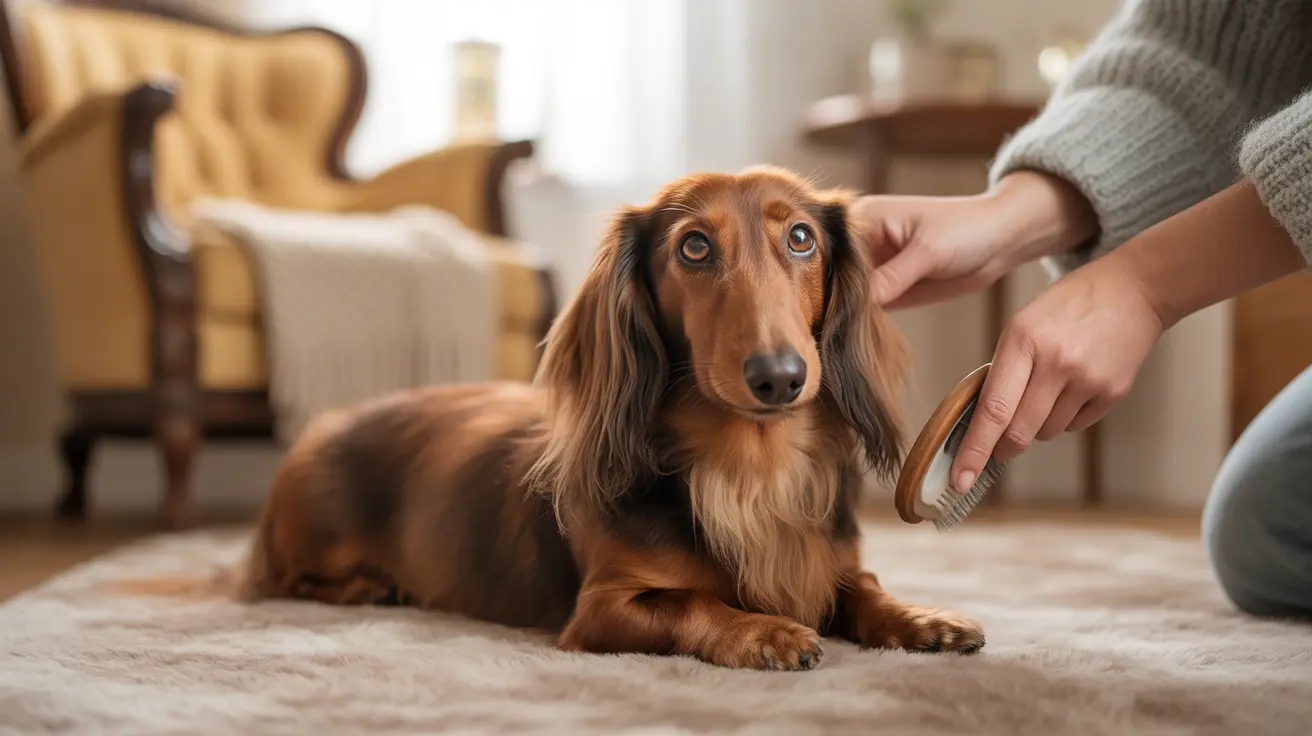The long haired dachshund, with its flowing coat and distinctive elongated body, stands out as one of the most elegant varieties of this beloved German breed. Originally bred for hunting, these charming "perro salchicha" or sausage dogs have evolved into cherished family companions, combining beauty with a spirited personality.
Whether you're considering adding one to your family or already share your home with these charismatic dogs, understanding their unique characteristics and care requirements is essential. Let's explore everything you need to know about these distinctive canines.
The Distinctive Long Haired Dachshund
Unlike their smooth-coated cousins, long haired dachshunds sport a silky, flowing coat that adds an extra layer of elegance to their appearance. Their fur is particularly feathered around the ears, chest, and tail, creating a striking visual effect that sets them apart from other dachshund varieties.
These beautiful dogs typically have a softer temperament compared to their wire-haired and smooth-coated relatives, though they still maintain the characteristic dachshund determination and intelligence.
Understanding the Perro Salchicha
Known affectionately as "perro salchicha" in Spanish-speaking regions, these dogs carry their distinctive appearance with pride. Their long, low-set body was purposefully bred for hunting badgers and other burrowing animals, with their extended frame allowing them to navigate underground tunnels effectively.
Despite their hunting heritage, modern long haired dachshunds excel as family companions, bringing their loving nature and watchdog instincts into homes worldwide.
Grooming and Maintenance
The luxurious coat of a long haired dachshund requires regular maintenance to keep it healthy and mat-free. Regular brushing sessions, at least 2-3 times per week, help prevent tangles and maintain the coat's natural shine. Pay special attention to areas prone to matting, such as behind the ears and under the legs.
Professional grooming every 6-8 weeks can help maintain the coat's condition and manage any stubborn tangles or mats that may develop.
Exercise and Health Considerations
Despite their small size, long haired dachshunds need regular exercise to maintain their health and prevent obesity. Daily walks and supervised play sessions help keep them physically and mentally stimulated while preventing back problems common to the breed.
Their long spine makes them particularly susceptible to intervertebral disc disease (IVDD), making it crucial to prevent jumping from heights and maintain a healthy weight through proper diet and exercise.
Training and Socialization
Early socialization and consistent training are essential for developing well-adjusted long haired dachshunds. Their intelligent but sometimes stubborn nature requires patience and positive reinforcement techniques. Focus on establishing good habits early, particularly regarding barking and interaction with other dogs.
Frequently Asked Questions
How often should I bathe my long-haired dachshund to prevent matting?
Bathe your long-haired dachshund every 6-8 weeks, using a dog-specific shampoo and conditioner. More frequent bathing can strip the coat of natural oils. Always brush thoroughly before bathing to prevent mats from tightening.
What are the best ways to prevent back problems in perro salchicha due to their long spine?
Use ramps for furniture access, maintain a healthy weight, prevent jumping from heights, and use a proper harness instead of a collar. Regular exercise helps strengthen supporting muscles, but avoid high-impact activities.
Why do dachshunds need regular grooming, especially for their long or wire-haired coats?
Regular grooming prevents matting, distributes natural oils throughout the coat, and allows early detection of skin issues or parasites. It also helps maintain the coat's natural insulating properties and keeps the dog comfortable.
How can I ensure my dachshund stays healthy and avoids obesity?
Monitor food portions carefully, provide regular exercise appropriate for their age and ability, and avoid excessive treats. Regular vet check-ups help maintain appropriate weight goals and address health concerns early.
What are the most effective training methods for a stubborn dachshund?
Use positive reinforcement techniques, keep training sessions short and engaging, and remain consistent with commands and rules. Reward-based training works best, as dachshunds respond well to food motivation and praise while resisting harsh corrections.






